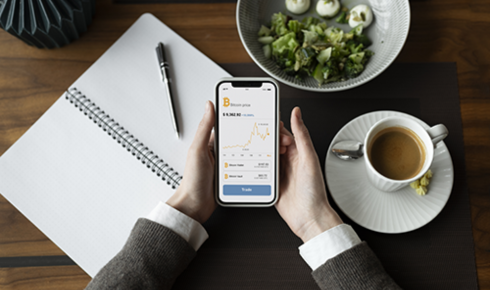1. What is financial independence in your 30s?
Financial independence in your 30s refers to the freedom of controlling one’s finances, attaining one’s financial goals, and the ability to sustain a lifestyle that is independent of other people’s sources of income.
2. Why is financial independence important in your 30s?
You will be able to make life decisions freely, pursue passions, retire early, and achieve other long-term goals if you achieve financial independence in your 30s.
3. What should I do to achieve financial independence in my 30s?
Clear goals for financial stability
Develop a budget
Reduce debt
Invest wisely
Build an emergency fund
Start retirement planning
4. How much should I save each month for financial independence?
Target to save at least 20-30% of your income, though the percentage may vary depending on your goals and lifestyle.
5. What is the difference between financial independence and retirement?
Financial independence means having the freedom to choose when and how you want to work, while retirement specifically refers to the period after leaving the workforce entirely.
6. How can I increase my income to achieve financial independence?
Pursue side hustles
Look for promotions or change jobs
Develop skills
Create passive income streams
7. Should I be saving or investing in my 30s?
You should save and invest. Savings provide liquidity, while investments are the means to build wealth. Balance both
8. What are some good investment options to build financial independence?
Index funds
Real estate
Retirement accounts (401(k), IRAs)
Stocks and ETFs
Peer-to-peer lending
9. How do I control expenses to achieve financial independence?
Record your spending, budget, and prioritize your needs. Cut down on unnecessary expenses and automate your savings.
10. What is the significance of debt toward becoming independently financially independent?
The decrease or elimination of excessive interest-carrying debt hastens financial independence because you increase disposable cash flow toward savings and investment.
11. How do I enhance my credit score to support my independence in my finances?
Pay bills in time
Reduce your utilization of credit
Don’t apply for credit accounts
Maintain credit type
12. Why is an emergency fund important?
An emergency fund serves as a cushion in terms of finance for unforeseen events to ensure stability and independence.
13. Do I need to invest in real estate for financial independence?
Real estate can be a good investment tool for accumulating wealth and gaining financial independence by means of rental income and property appreciation.
14. How much in emergency savings do I need for financial independence?
Ideally, you want to have 3-6 months of living expenses in an emergency fund.
15. What is the 4% rule for financial independence?
The 4% rule recommends that you take 4% of your retirement savings each year to ensure your funds last at least 30 years.
16. How do I automate my journey to financial independence?
You should set up automatic contributions to savings, retirement accounts, and investments to constantly build wealth.
17. Do I pay off student loans or invest for financial independence?
It’s a balance. Pay off high-interest debt and invest for future wealth.
18. How does financial independence affect relationships?
Financial independence reduces stress in relationships, allows shared goals, and gives couples the flexibility to pursue dreams together.
19. How do I measure my progress toward financial independence?
Use financial tools, budgeting apps, or spreadsheets to track savings, investments, and expenses toward financial independence.
20. How do taxes impact financial independence?
Reduce tax liabilities by investing in a tax-efficient manner and using retirement accounts, tax credits, and deductions.
21. What is the role of insurance in financial independence?
Having adequate insurance coverage (health, life, disability) protects your assets and provides financial security so you can maintain your independence.
22. How do I balance financial independence with lifestyle inflation?
Control lifestyle inflation by regularly reviewing financial goals, cutting back on non-essential expenses, and maintaining a savings-first mindset.
23. What are some smart financial habits for achieving financial independence?
Budgeting
Automating savings
Investing regularly
Seeking financial education
24. How important is investing for long-term financial independence?
Investing plays a critical role by allowing your money to grow over time through compound interest and diversification.
25. Should I make a financial independence plan on my own or with the help of a financial advisor?
You can do it yourself, but a financial advisor will be able to guide you with professional advice that suits your needs.
26. How can side hustles help me in achieving financial independence?
Side hustles are sources of extra income which can speed up saving and investing towards financial independence.
27. What is the difference between passive income and active income for financial independence?
Passive income involves minimal active effort to generate (rental income, dividends), while active income involves ongoing work for a living wage (full-time employment).
28. How do I invest with a tight budget to achieve financial independence?
Begin small with low-cost index funds, automate contributions, and then increase investments over time as your income and financial situation improve.
29. What are the tax implications of withdrawing early from retirement accounts?
Withdrawal from retirement plans, 401(k) plans, and even IRA accounts entails penalty and taxation, affecting one’s financial freedom.
30. How can you ensure the money saved while making it for financial freedom?
Invest appropriately, make adequate estate planning to help, get insurance coverage appropriate enough.
31. What pitfalls does one go through in planning financial freedom?
Spending excess money
Reduced risk and less retirement plans
Deemed less debt or paying it not seriously
32. How will I minimize any kinds of risk when it is in my thirties?
Establish an emergency fund, diversify your investments, and review your insurance coverage.
33. What is FIRE, and how does it connect to financial independence?
FIRE focuses on aggressively saving to retire much earlier than the traditional retirement age.
34. Should I contribute to a Roth IRA or a traditional IRA for financial independence?
Choose based on your current and future tax situation. Roth IRAs provide tax-free withdrawals in retirement, while traditional IRAs offer upfront tax deductions.
35. What are some of the ways one can maintain independence financially during recessions?
You should focus on building a rich emergency fund and investing in many assets and trying to manage spending.
36. What are the non-traditional ways to reach financial independence?
Digital entrepreneurship, real estate, and starting a business are some ways that are outside the traditional bounds to achieve financial independence.
37. How does goal setting impact financial freedom?
Clear, specific, and achievable goals define where to be financially and keep focused on the route to achieving independence.
38. How important is a network in building financial freedom?
Networking helps you unlock new opportunities, collaborations, and resources that accelerate your journey toward financial independence.
39. How can I calculate my net worth while building financial freedom?
Calculate assets (savings, investments) minus liabilities (debt) to determine your net worth regularly.
40. What is the difference between saving for financial independence and retirement?
Saving for financial independence encompasses a broader range of financial goals, while retirement savings are specifically geared toward post-career living.
41. How can financial independence impact future generations?
It provides the flexibility to support family, invest in education, and create wealth for heirs.
42. What are some ways to balance short-term financial goals with long-term independence?
Allocate a portion of your income to short-term savings and investments, while the majority goes toward long-term financial independence.
43. How does inflation affect building financial independence?
Higher inflation rates erode purchasing power, making it essential to invest and save aggressively to outpace inflation.
44. What is the 50/30/20 rule for budgeting toward financial independence?
Set aside 50% of earnings for essential items, 30% for discretionary spending, and 20% for savings and investments.
45. How do I plan for those surprise financial independence milestones?
Rebalance your plan, diversify your investments, and have that cushion to roll with the punches.
46. How does a high cost of living affect financial independence?
A high cost of living requires higher savings rates and may lead to delayed financial independence unless managed carefully.
47. How can financial education help with building independence?
Learning about personal finance, investing, and financial planning helps make informed decisions, accelerating your path to financial independence.
48. What are some ethical considerations in achieving financial independence?
Balance financial success with social responsibility, supporting sustainable investing and giving back to the community.
49. How Can I Be Financially Independent and Support My Ageing Parents?
Have a budget that takes in family responsibilities but also saves and invests for future independence.
50. What is the role of continuous learning in being financial independent?
Continuous learning gives you updated financial strategies, investment opportunities, and trends on the market, helping towards sustainable independence.





TT88banca, okay, so honestly, the graphics are pretty nice and I find the games fun. It’s easy to get started. I found this place here tt88banca, what do you think about it?
Your article helped me a lot, is there any more related content? Thanks! https://accounts.binance.info/id/register-person?ref=UM6SMJM3